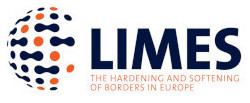Linguistic and Cultural Borders: Transparent or Not
Research Focus and Methodology
Sara’s research explores how in the multiethnic community of the post-industrial Ruhr valley in Germany, women’s cabaret reinvents the area’s industrial past. She more particularly examines how women’s humorous cultural performances simultaneously construct, reframe and challenge social hierarchies in communities that have been historically defined by male-dominated labor. Her study is informed by qualitative ethnographic methods but primarily makes use of in-depth interviews and an interactionist focus group interview. During her fieldwork, she visited locally produced cabaret acts which featured parodic characters that dramatized women’s traditional roles as miner’s wives and domestics or the working-class area’s unemployed or pensioned inhabitants. Staging working class identities associated with female social reproductive labour in the Ruhr Area, these performers highlight the social marginality associated with these women and the Ruhr Area itself, allowing them to “punch up” to power, that is, to use humour to target someone or a group that is privileged, entitled or grossly overempowered.
Relation to Borders
The study has elements of a mobile multisited ethnography as it initially followed performances deemed relevant to examine its central research question. By following Ruhr area female cabaret performers as they traversed the region, it was possible to see how they were re-constructing and challenging gender roles that were historically laid out for them and how their audiences engaged in this process. Since the study sought to investigate boundary and place-making through humorous cultural events, borders in the research appeared porous, never fixed or static. Knowledge exchange between audience members and performers occurred during the dynamic process of humorous performances as well as through the marketing and dissemination preceding them.
Findings and Takeaways
Sara’s research produced a rich and multifaceted description of a comedyscape of artists and audience members who are actively engaged in changing static gender roles that persist in their regional cultural landscape. Interviews with performers and audience members vividly detail the fun and excitement that occurs as women enact spaces where they are able to redefine themselves within their communities. Hardship and marginalization also reoccur as topics, especially since the COVID-19 pandemic caused many performances to be cancelled, threatening the livelihood of cabaret performers, especially female ones, and causing many audience members to live in social isolation. The results of the study show that further research employing qualitative and ethnographic methods should be done which focuses on humour performance and gender identity in post-industrial communities where cabaret, stand-up or hybrid forms of comedy are popular forms of entertainment.
Researcher: Sara Atwater (see profile)
Supervisors: Leonie Cornips, Louis van den Hengel, Evelyn Ziegler (see profiles)
